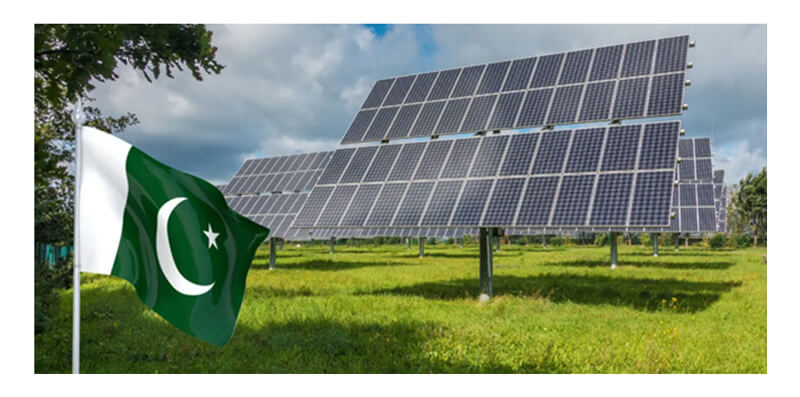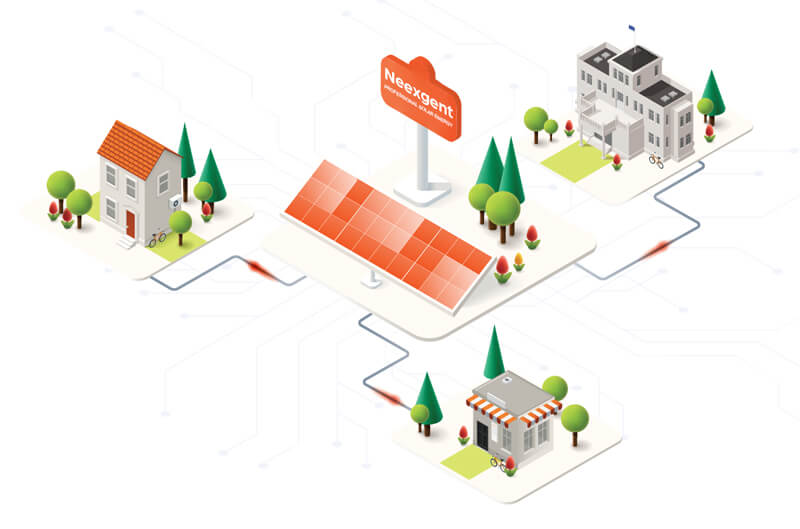Content
The Pakistan Government Solar Panel Scheme aims to promote renewable energy and reduce dependency on fossil fuels. With abundant sunlight year-round, Pakistan is well-positioned to harness solar energy for electricity generation, benefiting both urban and rural areas. This initiative not only addresses energy shortages but also aims to mitigate environmental impacts.

Objectives of the Scheme
-
Energy Security: To diversify the energy mix and reduce reliance on imported fuels.
-
Economic Growth: To create job opportunities in the renewable energy sector.
-
Environmental Sustainability: To decrease greenhouse gas emissions and promote clean energy usage.
Benefits of Solar Energy
-
Cost-Effectiveness: Once installed, solar panels can significantly reduce electricity bills.
-
Job Creation: The installation and maintenance of solar panels provide employment opportunities.
-
Grid Independence: Solar energy can help off-grid areas access electricity.
Implementation Strategies
The government collaborates with local and international partners to facilitate the rollout of solar panels. Key strategies include:
Current Progress
The scheme has already seen substantial interest, with thousands of solar panels installed across the country. Rural areas have especially benefited, with improved access to electricity enabling better education and healthcare services.
Data Overview
Here’s a representation of the solar panel installations across different provinces in Pakistan:
|
Province
|
Number of Installations
|
|
Punjab
|
15,000
|
|
Sindh
|
8,000
|
|
Khyber Pakhtunkhwa
|
5,500
|
|
Balochistan
|
3,000
|
|
Gilgit-Baltistan
|
1,500
|
|
Azad Kashmir
|
2,000
|
Community Engagement and Support
The success of the Solar Panel Scheme heavily relies on community involvement. Local governments and NGOs play crucial roles in raising awareness and providing support to residents. Workshops and training sessions are conducted to educate communities about solar technology, installation processes, and maintenance.
Challenges Faced
Despite its successes, the scheme encounters several challenges:
-
Initial Costs: High upfront costs can deter potential users, even with subsidies.
-
Awareness and Education: Limited understanding of solar technology may prevent widespread adoption.
-
Infrastructure Issues: In rural areas, the lack of proper infrastructure can hinder the installation of solar systems.
Comparative Analysis
To understand the impact of the Solar Panel Scheme better, it is beneficial to compare Pakistan's progress with other countries in the region. Countries like India and Bangladesh have also made strides in solar energy adoption, leveraging various models that Pakistan can learn from.
Regional Solar Initiatives
-
India: With aggressive solar policies and large-scale solar farms, India has set ambitious targets for solar energy production, significantly increasing its capacity over recent years.
-
Bangladesh: Focused on off-grid solar solutions, Bangladesh has successfully implemented solar home systems in rural areas, providing electricity to millions who previously had none.
Technological Advancements
Innovations in solar technology are essential for improving efficiency and reducing costs. Pakistan is exploring partnerships with tech companies to develop advanced solar panels and energy storage solutions. These technologies promise higher efficiency rates and better integration with the national grid.
Policy Framework
The government is also working on establishing a robust policy framework to ensure the long-term sustainability of solar energy initiatives. This includes regulatory measures, incentives for research and development, and support for local manufacturers of solar technology.

Training and Capacity Building
The success of the Solar Panel Scheme is also dependent on having a skilled workforce. The government is partnering with vocational training institutes to develop programs that focus on renewable energy technologies. These programs will equip individuals with the necessary skills to install, maintain, and troubleshoot solar systems, creating a knowledgeable workforce that supports the industry.
Case Studies
Several case studies highlight the positive impacts of solar energy in Pakistan. For instance, in a small village in Punjab, the installation of solar panels led to extended hours of study for children and improved access to healthcare services. Local entrepreneurs have also started small businesses powered by solar energy, boosting the local economy.
Public-Private Partnerships
Encouraging collaboration between the public and private sectors can enhance the efficiency and reach of the Solar Panel Scheme. Engaging private companies in financing, installation, and maintenance can drive innovation and provide residents with more options for solar solutions.
Environmental Impact
Transitioning to solar energy significantly reduces carbon emissions, contributing to Pakistan's climate action goals. By decreasing reliance on fossil fuels, the Solar Panel Scheme plays a vital role in fostering a cleaner environment and promoting sustainable development.
Global Partnerships
Pakistan is actively seeking to collaborate with global entities focused on renewable energy. By joining international coalitions, Pakistan can access funding, expertise, and technology, ensuring that its solar initiatives are robust and effective.
Through these comprehensive strategies and collaborative efforts, the Pakistan Government Solar Panel Scheme holds promise for transforming the country's energy landscape, empowering communities, and fostering economic growth.
Local Manufacturing Initiatives
To further bolster the solar energy sector, Pakistan is promoting local manufacturing of solar panels and components. Establishing domestic production facilities can reduce reliance on imports, lower costs, and create jobs. The government is incentivizing local businesses to invest in solar manufacturing, ensuring that the benefits of the scheme are maximized within the economy.
Overview of Local Solar Manufacturing
Here’s an overview of the current landscape of solar manufacturing in Pakistan:
|
Company Name
|
Location
|
Annual Production Capacity (MW)
|
|
SolarTech Pakistan
|
Lahore
|
100
|
|
Green Power Solutions
|
Karachi
|
75
|
|
EcoSolar
|
Islamabad
|
50
|
|
SunRise Energy
|
Peshawar
|
30
|
|
Pak Solar Industries
|
Multan
|
60
|
Integration with Other Renewable Sources
While the focus is primarily on solar energy, the government recognizes the importance of a diversified renewable energy portfolio. Integrating solar power with other renewable sources, such as wind and hydropower, can create a more resilient energy system. Hybrid systems can provide stable electricity generation, especially in regions with varying weather conditions.
Impact on Rural Electrification
One of the most significant impacts of the Solar Panel Scheme is on rural electrification. Many remote areas in Pakistan have historically been underserved by the national grid. Solar panels offer a viable solution to provide electricity to these communities, improving quality of life and enabling access to education and healthcare.

Community Solar Projects
Community solar projects are being explored as a way to expand access to solar energy. These initiatives allow multiple households to share a single solar installation, reducing costs and making solar energy accessible to those who cannot afford individual systems. Such projects foster community involvement and cooperation, further enhancing social cohesion.
Monitoring and Evaluation
To ensure the effectiveness of the Solar Panel Scheme, a robust monitoring and evaluation framework is being established. Regular assessments will track progress, measure impact, and identify areas for improvement. This data-driven approach will help refine strategies and enhance the overall effectiveness of the initiative.
International Best Practices
Pakistan is keen to learn from the experiences of other countries that have successfully implemented solar energy programs. By studying international best practices, the government can adopt successful models and adapt them to the local context. This includes exploring financing options, policy frameworks, and community engagement strategies that have proven effective elsewhere.
Financial Mechanisms
Innovative financial mechanisms are critical for the sustained growth of the solar energy sector. The government is exploring options such as green bonds and solar financing cooperatives, which can provide additional funding sources for solar projects. These mechanisms can attract private investment and expand the reach of solar energy across the country.
Environmental Education
To promote long-term sustainability, the government is integrating environmental education into school curriculums. Teaching students about the benefits of renewable energy and the importance of environmental stewardship can foster a culture of sustainability from a young age. This educational approach aims to create a future generation that prioritizes clean energy solutions.
Collaboration with Research Institutions
Engaging with universities and research institutions can drive innovation in solar technology. Collaborative research initiatives can lead to the development of more efficient solar panels and energy storage solutions tailored to Pakistan’s specific climate and needs. By harnessing academic expertise, the government can accelerate technological advancements in the sector.
Future Investments
Looking ahead, substantial investments will be required to scale up solar energy initiatives. The government is actively seeking both domestic and foreign investors to fund solar projects. By creating a conducive investment environment, Pakistan can attract capital that will enhance the reach and effectiveness of the Solar Panel Scheme.
Socioeconomic Impact
The socioeconomic benefits of solar energy extend beyond just electricity generation. Increased access to energy can empower women by providing them with opportunities for entrepreneurship and employment. Furthermore, businesses can thrive with reliable power supply, contributing to economic development and poverty alleviation.
Through these multifaceted approaches, the Pakistan Government Solar Panel Scheme is positioned to not only transform the energy landscape but also uplift communities, stimulate economic growth, and pave the way for a sustainable future.








